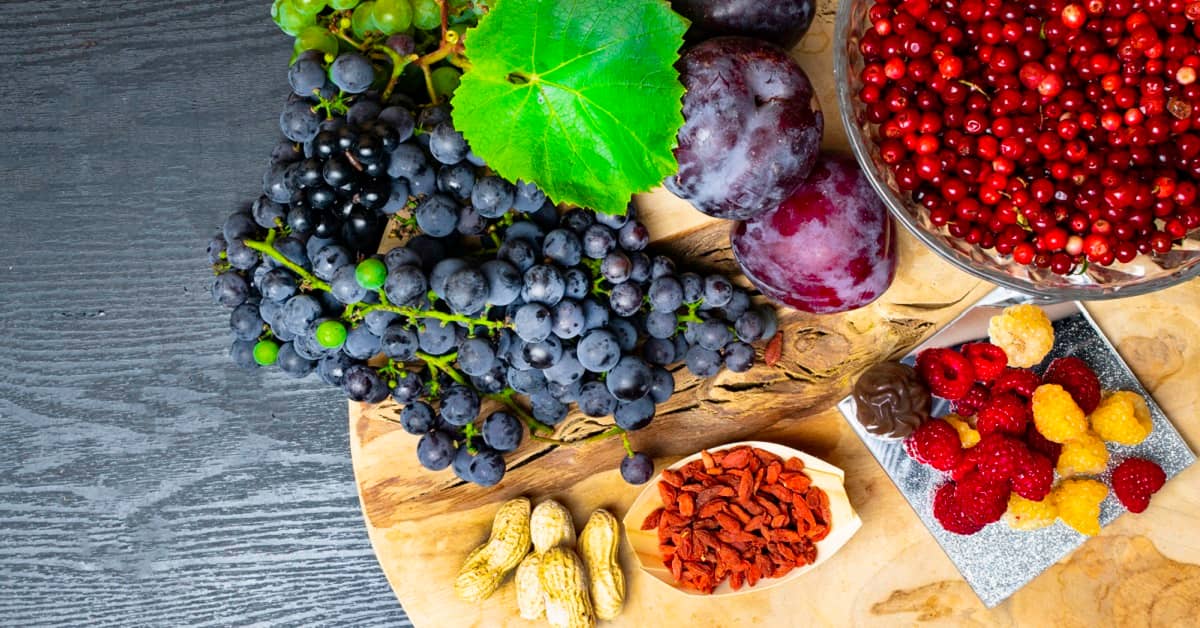
Of course, it will be years until an actual anti-aging pill makes it to the market, but the good news is that the natural compound they’re most interested in – the one that shows the most promise – is available right now.
In fact, you can have some of this powerful life-extending nutrient with your dinner tonight.
I’m talking about resveratrol.
While you’ve already heard a lot about this anti-aging chemical found in red wine, the latest research is revealing brand-new discoveries about exactly how resveratrol helps you remain youthful—and how to use it.
Resveratrol is a potent antioxidant compound that defends against harmful oxidative stress and has been shown to fight premature aging, prevent chronic illness, and ensure critical genetic material continues functioning in a healthy way.
Research suggests that resveratrol may decrease the risk of Alzheimer's disease, help fight and prevent cancer, kill off pathogens, reduce inflammation, lower blood pressure and help defend against heart disease.1 But when it comes to these powerful anti-aging actions, researchers are finding that resveratrol works by interacting with proteins in cells called sirtuins.
Sirtuins are vitally important because of their epigenetic effects. They activate or “turn on” certain genes while they suppress the actions of other genes. What’s more, they're especially influential in determining how genes respond to stress.
Mastering Gene Regulation
Sirtuins have been called the cell's "master regulators."For one thing, they supervise how cells function in relation to the nutrients that happen to be available. And they can change things around – in life-extending ways – when you fast or eat very little food.2 They can also determine what happens in cells when you exercise or encounter toxic substances. In most of these instances, researchers believe, sirtuins affect cells in ways that help you live longer and in better health. Specifically, sirtuins support the cell’s mitochondria—the tiny power plants that fuel cellular activity.
A Little Goes a Long Way
Studies of resveratrol demonstrate that when it interacts with a cell’s estrogen receptors, sirtuins become more effective at their beneficial epigenetic tasks. Best of all, researchers are finding these positive results even when resveratrol is only present in tiny amounts.3 That's an important fact.Because one of the problems with consuming resveratrol in food is thought to be the fact that when you eat something containing this nutrient, it's not very "bioavailable."Which means that very little gets into your body and is absorbed. Now researchers realize this might actually be a good thing!
According to British researchers, resveratrol often seems to have a more beneficial affect on sirtuins in very small doses. Large amounts, they say, can actually be counterproductive and may not be helpful.
As the scientists write, "contrary to popular lore, high doses of resveratrol may not be necessary to activate sirtuinsignalling and may in fact be harmful, i.e. less is more."4 We’ve been aware of this for some time, which is the reason our sister company Green Valley Natural Solutions put a small (20 mg) dose of resveratrol in its Stem Cell Restore supplement. Our research showed this was actually more effective than a large dose. (The formula contains other ingredients that may be even more valuable for ensuring long life.)
New Natural Hormone Replacement
The fact that resveratrol interacts with estrogen receptors, this study shows, may also mean it could be used by older women as a kind of natural estrogen-replacement therapy.“Regular low doses of resveratrol, such as through moderate consumption of red wine as part of a healthy diet, may be able to provide the benefits of estrogen,” says researcher Henry Bayele. “This would apply to both men and women of all ages, but postmenopausal women may feel these benefits the most because they have lower estrogen reserves than men of a similar age.”
Where to Get Your Resveratrol
The foods that are richest in resveratrol, along with red wine, include dark chocolate, peanuts, cranberries, bluerries and red grapes.If you want to take resveratrol supplements, the jury is still out on what might be the optimum dose. As often happens with supplements, you have to play your best hunch based on limited evidence. There hasn’t been much research on the potential side effects of large doses of resveratrol. As the latest research suggests, in resveratrol’s case the old phrase “too much of a good thing” might apply. You don’t need a big dose.
In fact, just a few years ago some supplement makers launched a massive, aggressive campaign for their resveratrol supplement as an anti-aging miracle. It looks like there’s something to this, but the FDA shut them down – and I have to agree these companies were way ahead of the evidence that existed at that time.
